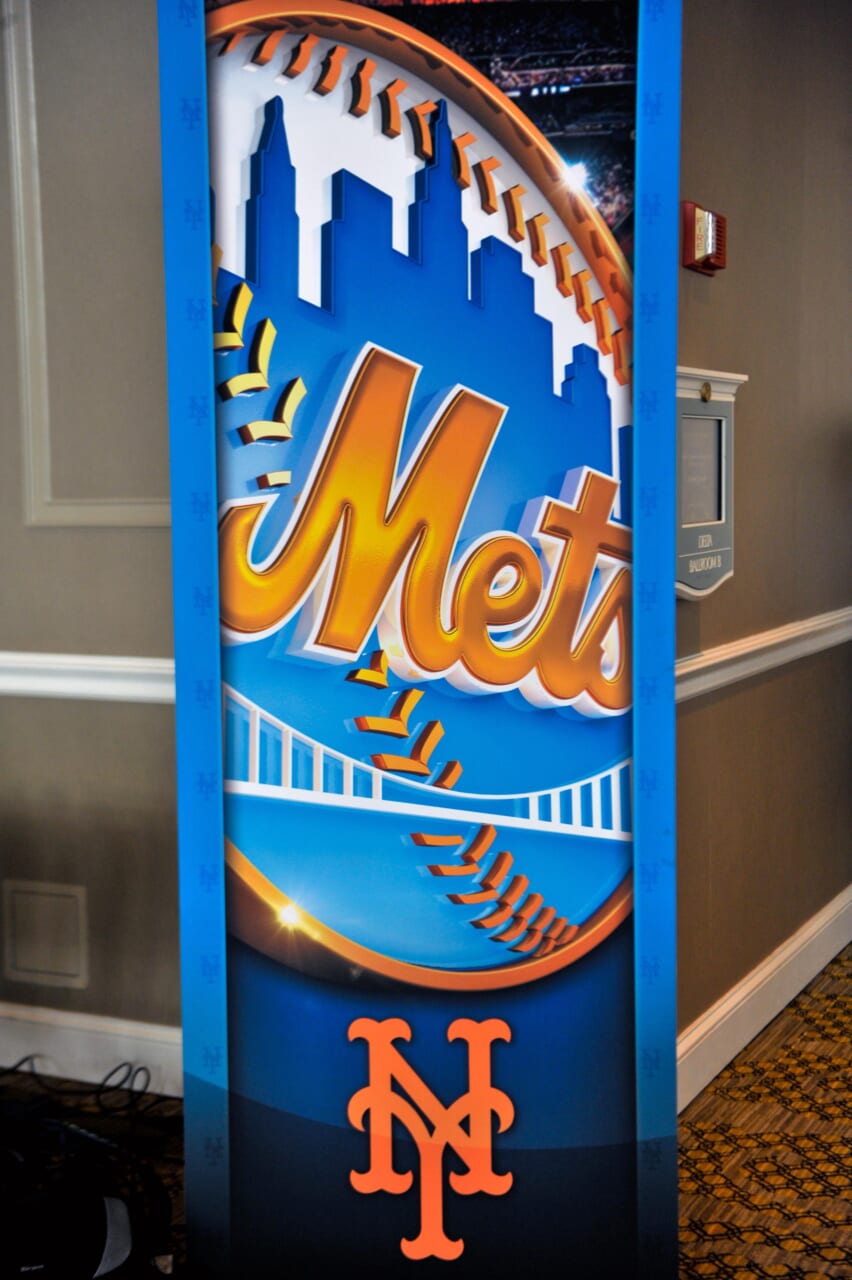
The New York Mets are still dealing with the aftermath of Ron Darling’s book 102 Stitches: Loose Threads, Ripping Yarns, and the Darndest Characters from My Time in the Game. It’s similar to what’s plaguing the NFL in Myles Garrett’s revelation that Mason Rudolph hurled a racist slur at him. Except this story has been unfolding for the Mets since April.
The Lowdown
Back in April, a story from the 1986 World Series emerged from Darling’s book. Just before game 3 of the 1986 World Series got started, Darling, alleges Dykstra hurled racist slurs “worse than anything Jackie Robinson would have heard†at the Red Sox starting pitcher, “Oil Can†Boyd. And it was the intensity of this racist rant that cause Boyd to surrender Dykstra’s leadoff home run, turning the tide of the series in favor of the Mets.
What’s Happening Now
Dykstra sued Darling for defamation and slander back in April. In September, Dykstra amended the suit to include Darling’s ghostwriter. Let’s face it, if Darling made up a lie, it is on the writer/publisher to verify this story. Because, I mean, this is aiding and abetting someone committing a crime.
Why Ron Darling is in More Trouble Than Lenny Dykstra
There’s a number of holes in Rom Daring’s story making it improbable that he heard anything definitively from Dykstra.
Ron Darling was sitting in the dugout during the series. Now, I was born in 1989, meaning it was still 2 years before I was even conceived by my parents when the World Series in question happened. YouTube has video footage of the game in question. Fenway Park was ROCKING that night. That’s 33,583 raucous Boston fans, going nuts in hoping to will their team to their first championship title since 1918.  Everyone was screaming, making noise, and trying to give all their positive energy to the Sox that night. And that includes all the Mets fans that were there, doing the same. It’s hard to find the exact dimensions from the on-deck circle to the dugout in Fenway, but we’re talking close to 50-75 feet easily, leaning more to 50. Also playing into account is where Darling was sitting on the bench, which could add another 25 feet.
So I have to ask Ron this. How can you be certain you heard a guy over the noise of 33,583 fans, from close to 75 feet away?
Who Else Was In Better Proximity to Hear Dykstra?
The home plate umpire Harry Wendelstedt, Bill Buckner, Boston’s catcher Rich Gedman, Wally Backman, Oil Can Boyd himself, and Darling’s SNY broadcast partner Kieth Hernandez were in a much better position to hear anything Dykstra could have said.
Now, Hernandez said he heard Dykstra yell, but didn’t hear what. Wally Backman, the guy ahead of Dykstra in the order, said Dykstra said nothing. Bill Buckner remained mum on the subject until his death.
What’s more is that Boyd, the guy who the insults were hurled at, never said a word about it. Don’t you think Boyd would have mentioned something about this in his biography he wrote?
A Potty Mouth Doesn’t Equal a Racist
I wrote about how there’s a difference in taunting and just being a jerk. Using racism to taunt someone is far from being a jerk, it’s just unacceptable in any walk of life. So IF Boyd was shaken by racial slurs being hurled his way (and Boyd to this day said he never heard racist slurs) it’s appalling that it took 33 years for it to come out.
But if you were one of my friends, they’d tell you I can use the “fish†word (not the actual word fish, but that other four-letter word that starts with the letter “fâ€) like the Oxford comma. That doesn’t mean I support using racist terminology in the slightest. So if Ron Darling heard racist taunts, how can he be so sure that it wasn’t coming from the fans?
CC Sabathia, Adam Jones, and other black athletes have commented about being on the receiving end of racist taunts while playing in Boston. If Boston has a history of racial discrimination from fans in the 21st century, it most certainly leads one to believe that fans did the same despicable things back in 1986. Or, let’s look back at the video, there was a large contingency of Mets fans in the stadium. Perhaps it was one of them.
But Ron Darling is the only one, publicly anyway, saying Lenny Dykstra said racist things to throw Boyd off his game. The leadoff man and the man batting behind Dykstra heard no racist slurs, and the pitcher these slurs were being hurled at didn’t hear anything. So how could anyone believe Darling when no one has offered corroborating evidence to suggest otherwise?
What This Could Mean
Defamation and slander are pretty serious crimes. Darling, if he’s found guilty, is looking at a fine, or jail time, or both. Why would SNY feel the slightest inkling to keep Darling on as a broadcaster? The man tried to turn his feud with another teammate from 1986 Mets into a bigger payday. The same will be said of Darling’s color commentary during the postseason. Not to mention the amount of money Darling could personally lose, as well as his publisher for publishing an unverified fact.
It’s probably harder than it should be for Dykstra to be able to make a solid defense for himself. He’s a known troubled soul with his own trouble with the law. But what Darling and his publisher did seemed like a classic case of defamation by definition. All to move a few more copies of a book? It seems as stupid as the Astros stealing signs.